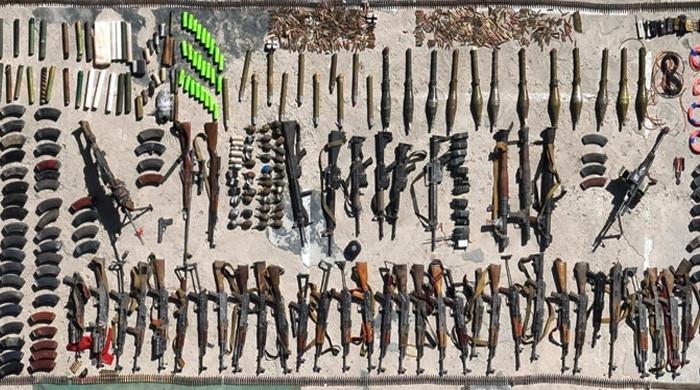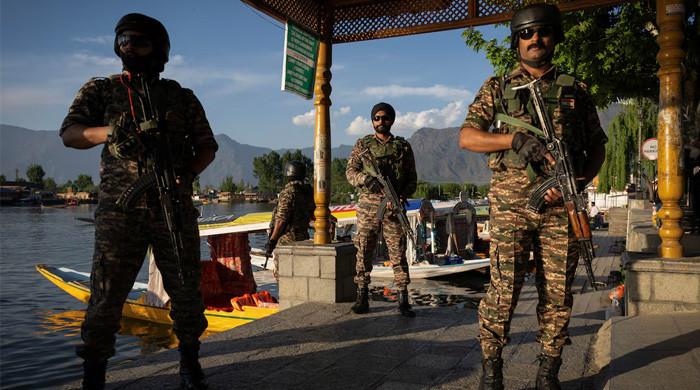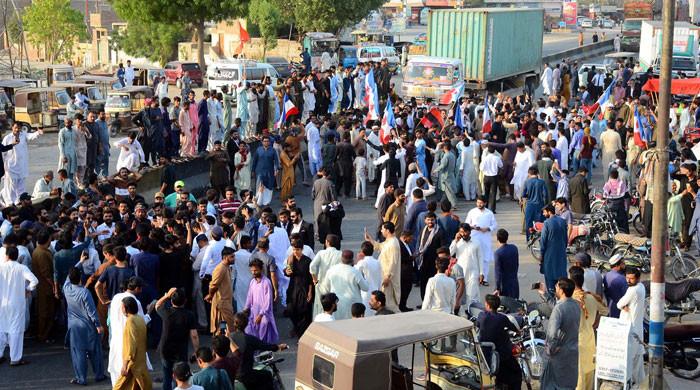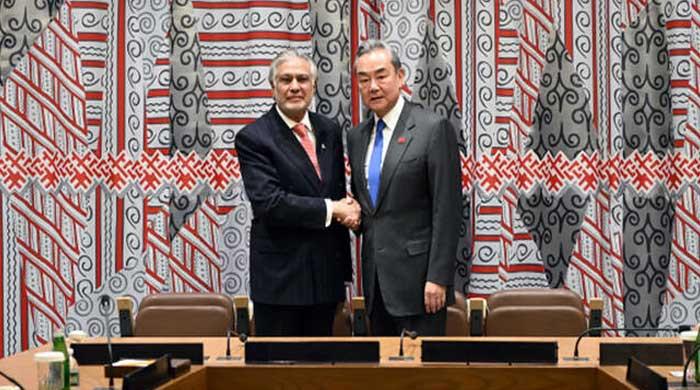CCI rejects Centre's plan to construct contentious canals on Indus River
Council also decides to return provisional ECNEC approval granted for construction of new canals
April 28, 2025
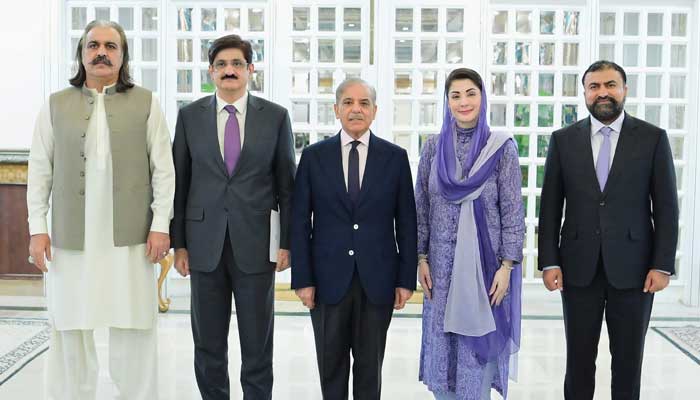
- No new canals without mutual understanding: statement.
- Body formed to ensure nation's food, eco security.
- Asif says Sindh govt requested to get roads cleared.
ISLAMABAD: The Council of Common Interests (CCI) on Monday rejected the federal government's proposal for the construction of new canals, overturning the Executive Committee of the National Economic Council’s (ECNEC) decision made on February 7.
"No new canals will be constructed without mutual understanding and consensus among all provinces... Centre will not move forward with any plans until a comprehensive agreement is reached between the provinces," stated a statement issued by Prime Minister Office following the all-important CCI meeting.
Prime Minister Shehbaz Sharif chaired the meeting, initially scheduled for May 2 but was convened today at Sindh government's request, to deliberate on the contentious canals project that sparked widespread across Sindh.
The eight-member council includes the chief ministers of all four provinces. Deputy Prime Minister and Foreign Minister Ishaq Dar, Defence Minister Khawaja Asif, and federal minister Ameer Muqam are also part of the council.
A total of 25 individuals participated in the CCI meeting on special invitation. The meeting was summoned to deliberate on a six-point agenda.
The CCI reviewed the Sindh government's agenda item concerning the proposal for new canal projects.
The statement read that the federal government was engaging with all provincial governments to create a long-term consensus on agricultural policy and water management infrastructure in Pakistan.
"The policy underlines that the water rights of all provinces are protected by the Water Apportionment Accord of 1991 and the Water Policy of 2018, with full stakeholder consensus," it added.
To address the concerns of all provinces and ensure the nation's food and ecological security, a committee will be established, consisting of representatives from the federal government and all provincial administrations.
This committee would propose solutions that align with the two consensus documents to meet Pakistan's long-term agricultural needs and water usage requirements, read the statement.
The statement further reiterated that water, as a vital national resource, is to be managed in accordance with the principles of mutual understanding and cooperation, as envisioned by the framers of the Constitution.
"The government is committed to resolving all water-related disputes amicably, ensuring that the concerns of any province are addressed through due diligence," it added.
In light of these discussions, the CCI has also decided to return the provisional ECNEC approval granted on February 7, 2024, for the construction of new canals, as well as the IRSA water availability certificate issued on January 17, 2024.
The Planning Division and IRSA have been instructed to engage in further consultations with all stakeholders to ensure national cohesion and resolve any remaining concerns until mutual understanding is achieved.
'Equal water rights'
Speaking to journalists after the meeting, Khyber Pakhtunkhwa Chief Minister Ali Amin Gandapur said that a reaffirmed commitment was made to ensure equal water rights for all provinces.
During the meeting, he confirmed, the decision to construct new canals from the Indus River had been withdrawn. "It has been decided to resolve issues through mutual understanding," he added.
Gandapur added that three of Khyber Pakhtunkhwa’s demands were approved to be included in the agenda for the next CCI meeting. He stated that a review of the National Finance Commission (NFC) Award will also be part of the next session’s agenda.
The chief minister further said that the agenda to recognise tobacco as a formal crop will be included in the next meeting as well. He termed the inclusion of these demands in the agenda as a major victory for KP people.
Sindh urged to get roads cleared
Speaking on Geo News programme Aaj Shahzeb Khanzada Kay Sath, Defence Minister Khawaja Asif said the CCI has decided that issue of canals would be taken up some other time with the consensus of all the provinces.
He said the any new initiative regarding canals would be taken after reviewing the situation of water in rivers "with 100% consent of the provinces".
"No one’s right would be affected. Sindh government has been requested to get the roads cleared as all their [protesters] demands have been accepted," he added.
Canal issue, protests
The Cholistan Canals issue, over the past few weeks, has emerged as a key point of contention between the Pakistan Peoples Party (PPP) led Sindh government and the PM Shehbaz Sharif-led government in the Centre.
The federal government plans to construct six canals on the Indus River to irrigate the Cholistan desert — a project that was rejected by its main ally PPP, and other Sindh nationalist parties.
According to government sources, the estimated cost of the Cholistan canal and system is Rs211.4 billion and through the project, thousands of acres of barren land can be used for agricultural purposes and 400,000 acres of land can be brought under cultivation.
Almost all political and religious parties, nationalist groups and civil society organisations along with lawyers are currently staging widespread rallies and sit-ins across Sindh against the controversial plan.
Despite the premier's assurance, sit-in at Khairpur Baberlo bypass against the controversial canal project entered its 11th day on Monday — leaving traffic between Sindh and Punjab suspended — while the protest at Mangrio Pump near Daharki on the National Highway has continued into its 9th consecutive day.
The ongoing blockade has severely impacted the transportation of essential goods, including petrol and food items, as trucks and trailers remain stranded. This has also led to increased difficulties for commuters and transporters.
Drivers of heavy containers stranded due to the protest have reported that their vehicle tires are deteriorating due to prolonged standing.




